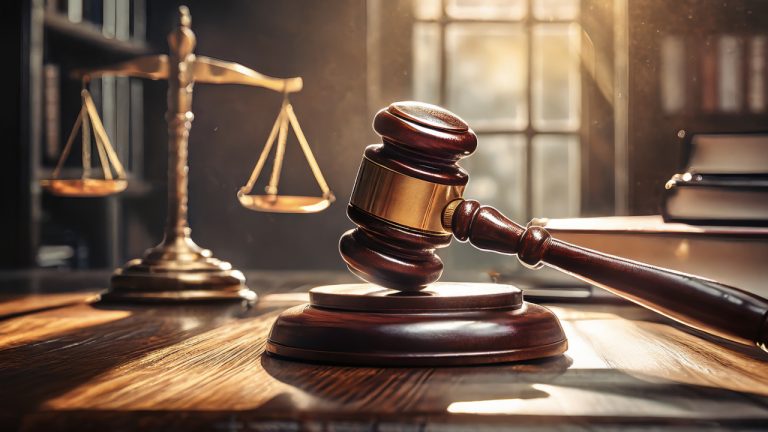SEC Suffers Another Setback Against Ripple — What Next?
Publikováno: 14.10.2023
 On October 3, U.S. District Judge Analisa Torres denied the Securities and Exchange Commission’s (SEC) interlocutory appeal of her July 13 decision. Judge Torres’ decision marked another public defeat for the SEC, and if you haven’t read about the case, check out our earlier article, “Ripple v. SEC — Respite for a Beleaguered Industry?” The […]
On October 3, U.S. District Judge Analisa Torres denied the Securities and Exchange Commission’s (SEC) interlocutory appeal of her July 13 decision. Judge Torres’ decision marked another public defeat for the SEC, and if you haven’t read about the case, check out our earlier article, “Ripple v. SEC — Respite for a Beleaguered Industry?” The […]

On October 3, U.S. District Judge Analisa Torres denied the Securities and Exchange Commission’s (SEC) interlocutory appeal of her July 13 decision. Judge Torres’ decision marked another public defeat for the SEC, and if you haven’t read about the case, check out our earlier article, “Ripple v. SEC — Respite for a Beleaguered Industry?”
The following editorial was written by guest authors Wyatt Noble and Michael Handelsman for Kelman.Law
Ripple’s battle with the SEC has captured headlines and stirred up debate since X was Twitter. Judge Torres’ initial decision was highly anticipated, and perhaps the most impactful part of her decision held that the sale of the XRP digital token on public exchanges did comply with federal securities laws because buyers had no reasonable expectation of profit based on Ripple’s efforts. But, the SEC is nothing if not persistent.
So What Is an Interlocutory Appeal?
An interlocutory appeal is an appeal that happens while other parts of a case are still moving forward. Those familiar with Judge Torres’s earlier decision may remember that this case is scheduled to go to trial on April 23, 2024. However, in this instance, the SEC filed a motion seeking permission to appeal Torres’ findings about “programmatic” sales of XRP and about “other distributions” of XRP as payment for services. The SEC claimed this potential appeal would be important to a “large number” of lawsuits. However, Judge Torres rebuffed the agency again, ruling that the SEC had failed to meet its burden to show that there were controlling questions of law, or that there remained substantial grounds for differences of opinion.
The Battle Between Ripple and the SEC Is Not Over Yet
Although crypto advocates rejoiced at Judge Torres’ initial decision, and again after she denied this interlocutory appeal, this case is far from over. After the trial on April 23, the SEC could appeal the entire decision, an outcome Ripple and XRP bagholders would probably like to avoid even if a favorable ruling from a federal court of appeals might be in Ripple’s future. If the SEC motioned for and was granted permission to appeal the whole case, it could be a couple of years before Ripple and the industry at large receive the clarity they so desire, and that is if Ripple won again. That is a fairly big “if,” considering Judge Torres’ initial decision was not a complete victory for Ripple.
As we noted in our previous article on this case, Judge Torres did find that Ripple had violated federal securities laws with respect to its sales of XRP to institutional investors. Additionally, other judges might decline to follow Judge Torres’ ruling, whether they disagree with her interpretation of federal securities law or simply find it inapplicable to a different factual scenario. Take for instance Judge Jed Rakoff’s decision in the SEC’s case against Terraform Labs. There, Judge Rakoff said the SEC had a “plausible claim” that Terraform Labs’ Terra USD token was a security when sold on public exchanges. However, note that Judge Rakoff’s decision came while he was considering Terraform’s motion to dismiss the SEC’s case. This means that Judge Rakoff was required to accept all reasonable inferences in the SEC’s favor, but when deciding the case on the merits he would not have to do so.
For now, Ripple and the SEC will continue to prepare for their trial in April, but in the meantime, crypto remains in regulatory purgatory. Other judges may soon adopt pieces of Judge Torres’ July 13 decision as controlling precedent, but because Congress is yet to pass a comprehensive bill addressing crypto it’s more important than ever to consult with legal experts well-versed in digital assets. Consulting with the lawyers here at Kelman PLLC early on is the most efficient way to ensure compliance with potentially applicable laws and regulations, and avoid legal pitfalls and expenses that could otherwise handicap your business.
Fill out our contact form here to set up a free 30-minute consultation, and read up on whether you need a crypto lawyer.
What do you think about the recent Ripple Labs ruling? Share your thoughts and opinions about this subject in the comments section below.